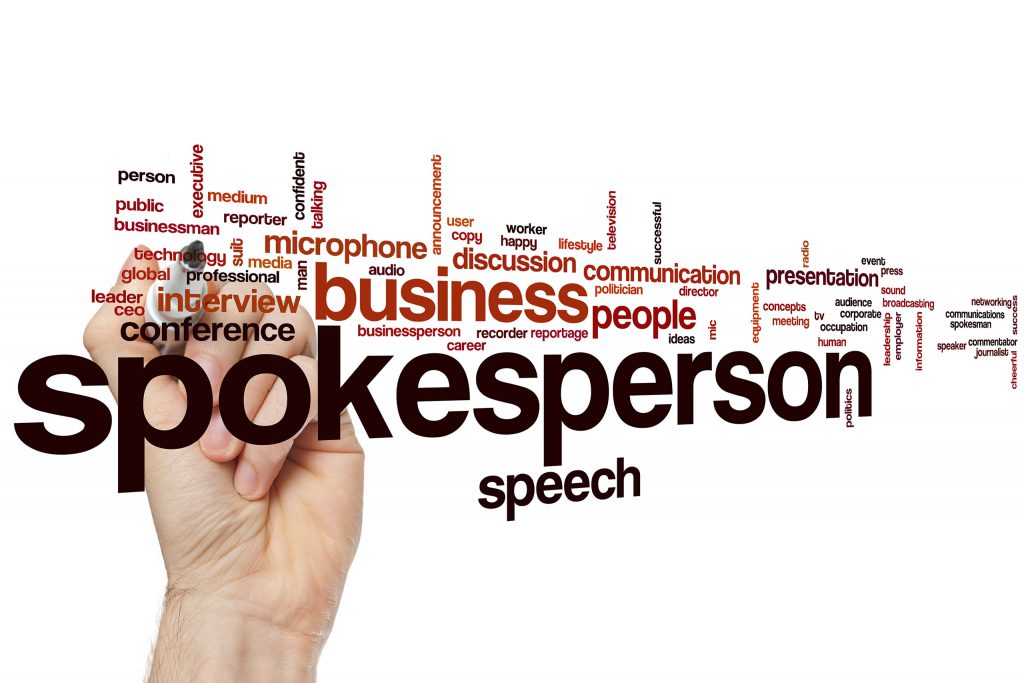Who Should Speak For You?

Since public relations is the art of effectively communicating your company’s story, the person who tells your story can make or break your program. While larger companies have a pool of marketing, sales, and senior management executives to carry the ball, it’s often difficult for an organization—start-ups in particular—to identify the right spokespersons. Often due to the fact that everyone in the company is wearing about 12 other hats as well. Still, there’s a lot of risk in assuming that whoever happens to be available will be the right person to respond to a call from an analyst or reporter. Let’s look at the criteria you should consider when deciding who should speak for your company.
Availability
Spokespeople who can’t be reached aren’t spokespeople at all. This sounds like a no-brainer, but we’ve seen many instances in which a story wasn’t written or was written in an unfavorable way because the client’s spokesperson simply couldn’t take a call. If someone is going to speak for your company, they need to be available within 1-2 hours’ notice. Lack of spokesperson availability has two distinct disadvantages: the reporter drops the story or interviews your competition without your company’s perspective or presence in the subsequent article.
Knowledge
Since your company may be called by people covering anything from a business trend story to a technical evaluation, your spokesperson should understand not only how your company’s product and technology works, but also your key differentiators, position in the market, and overall company strategy. Ideally, you would want to assign different people to different aspects of the story, perhaps letting a CTO talk technology, a marketing executive talk about product positioning, and the CEO talk about your company strategy, trends and market dynamics. But you still need one person who knows enough about all of these things to manage most conversations and quickly locate others to respond to questions he or she can’t answer.
Further, you must make sure that everyone who might be called upon to talk to the press or analysts is on the same page regarding your key product advantages, points of differentiation, and position in the market. Sounds obvious, but it’s a problem we’ve seen with clients time and again. That’s why it’s essential to create an FAQ for appropriate staff members to help them stay “on message” during media or analyst calls.
Media Relations Savvy
Finally, anyone talking with reporters must know how to handle aggressive questions. Reporters love controversy, and some try to create it by baiting a spokesperson into disparaging the competition, back-pedaling on announced claims, or otherwise going on the defensive. Your spokesperson should be familiar with these tactics and have the experience to handle them without diminishing the message you want to convey.
Media Training
Some folks are born communicators, while most of us need a bit more care and feeding. At the very least, informal practice sessions should be held once a month or so, and internal copy points and FAQs updated to include responses to the latest industry trends and issues. For major announcements and events, it never hurts to schedule a formal training session, which can be completed easily in a half day.
Share:
